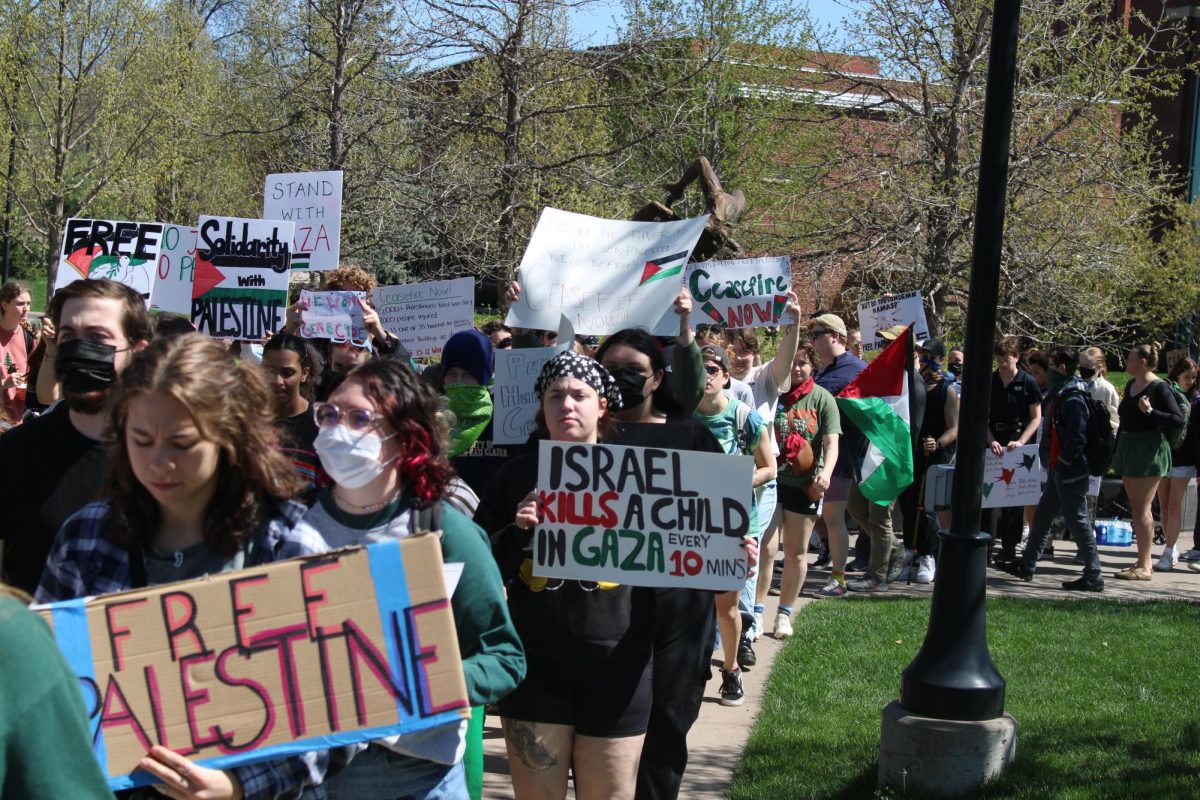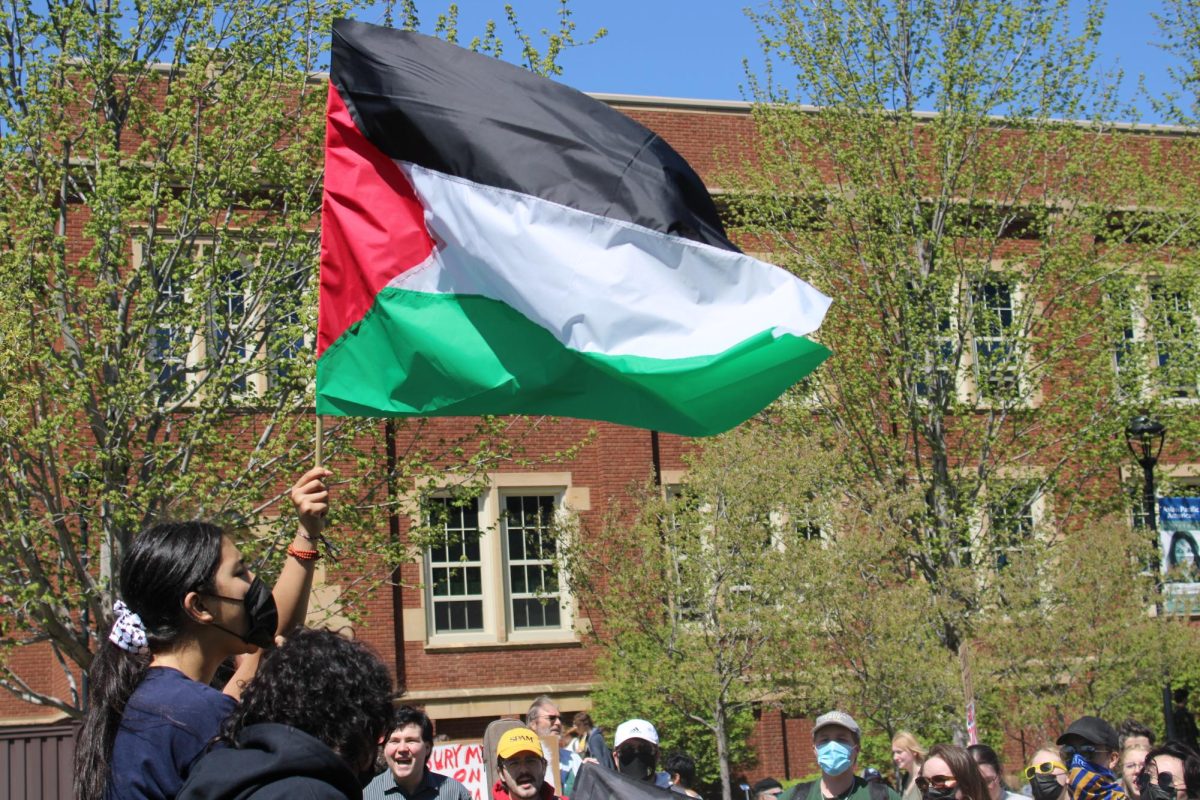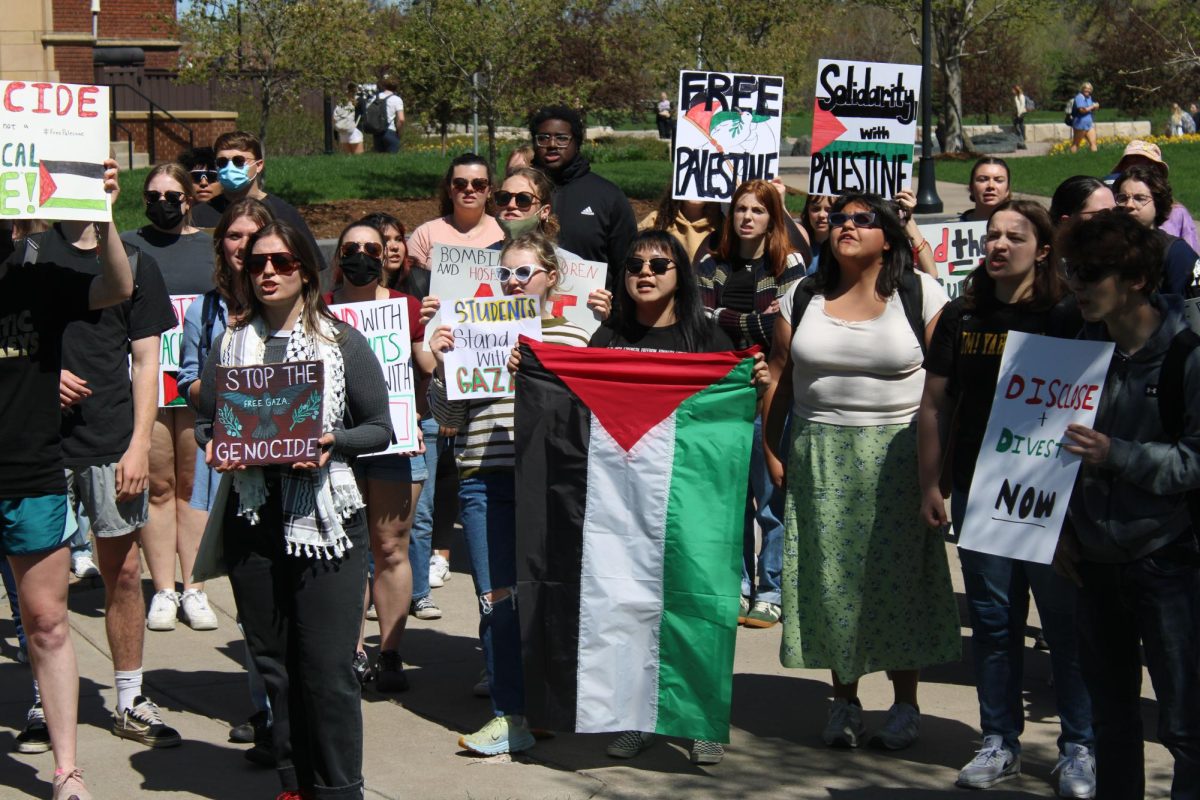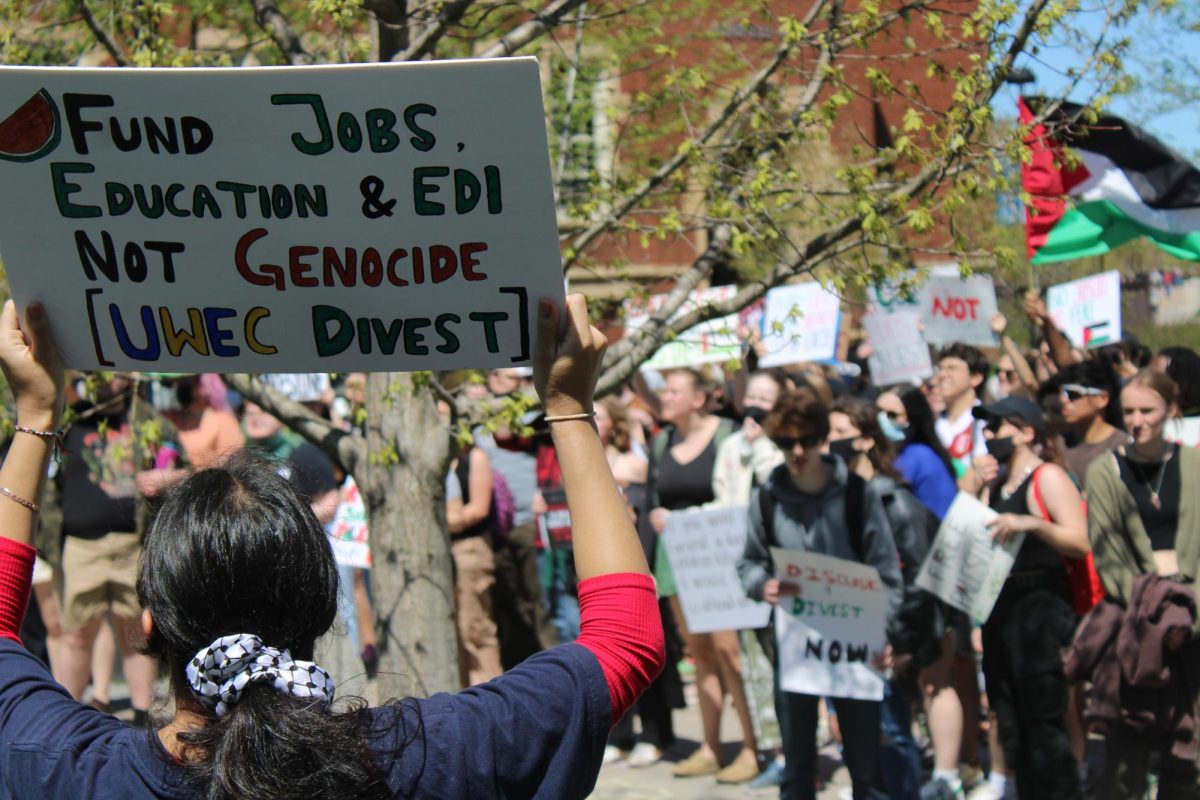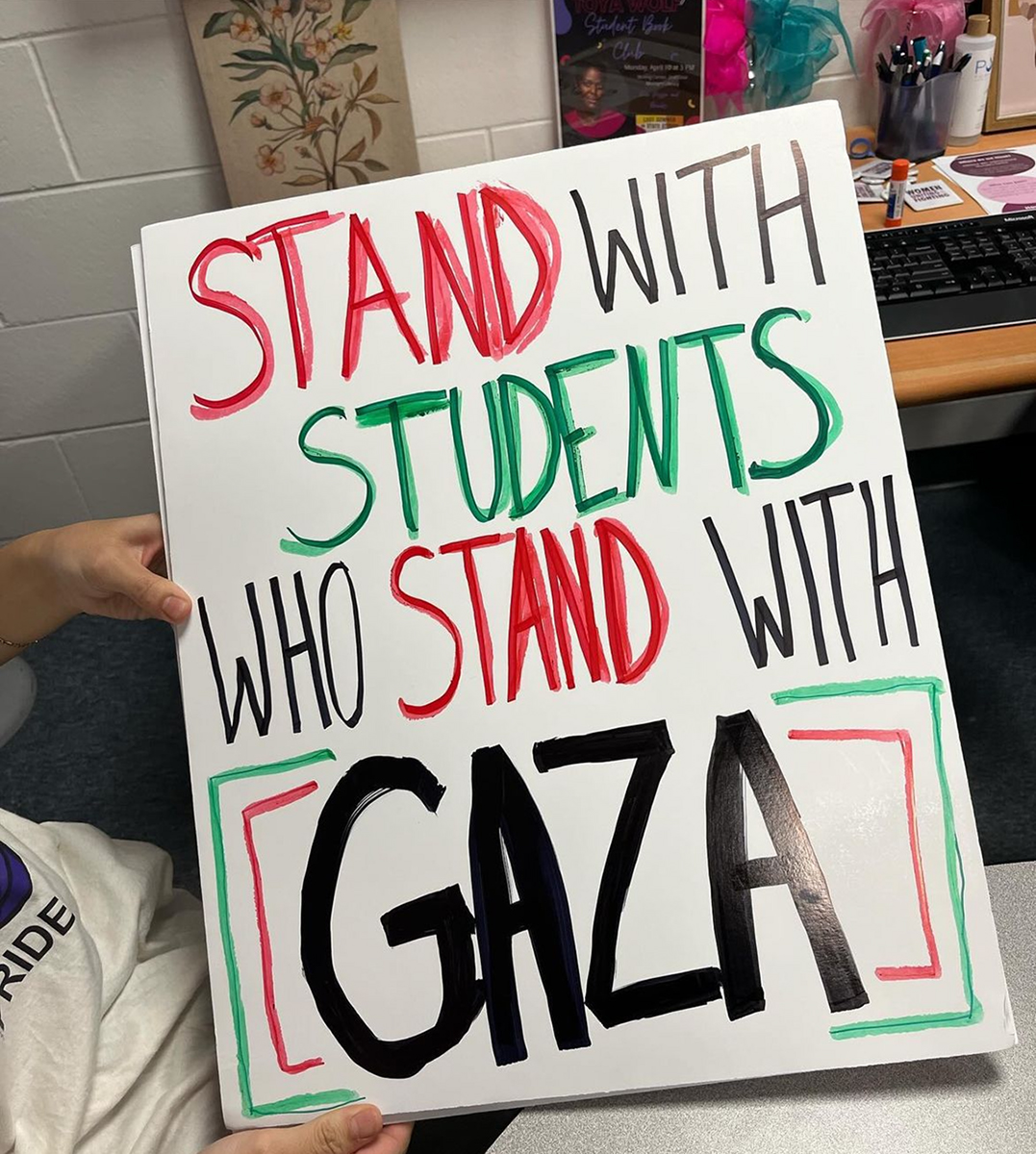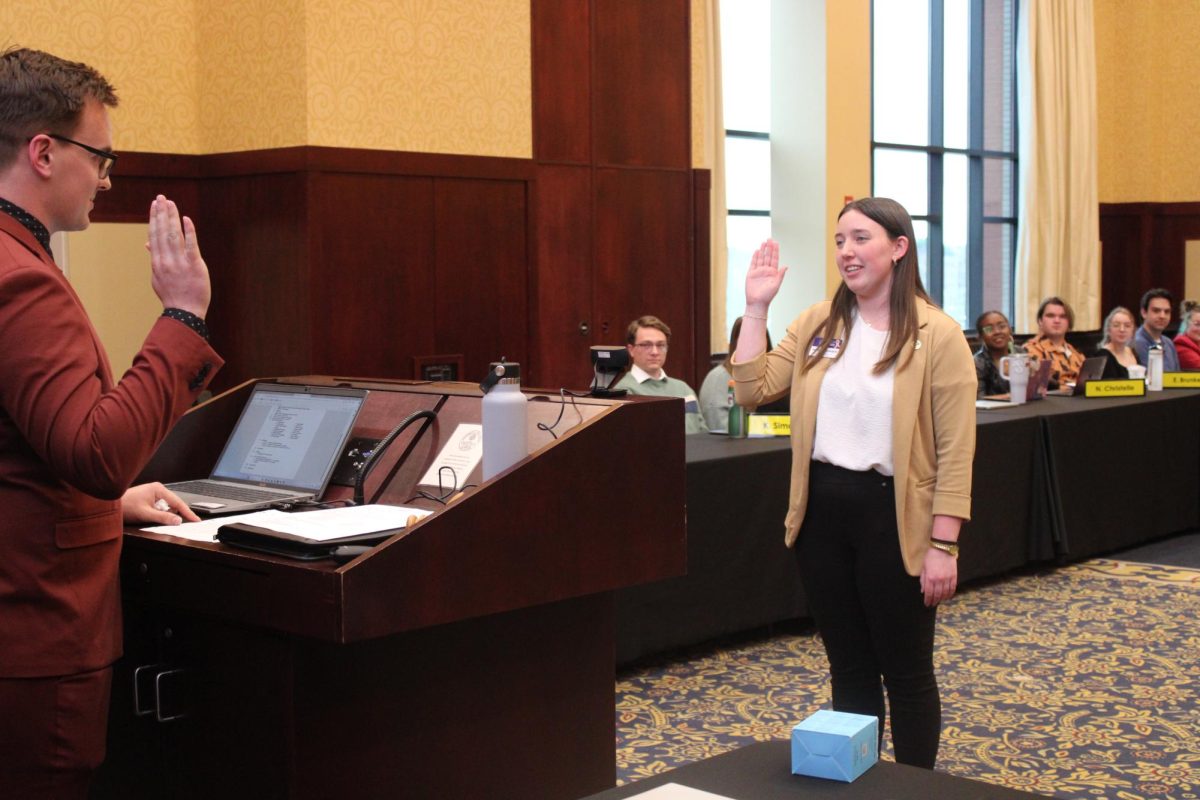They’ve seen a burning Colin Powell doll, been denied further conversation for revealing their U.S. identity and talked about the possible war in a pub with British soldiers waiting to be sent to Iraq.
They’ve also been approached by Japanese girls asking to be their friends and told by Costa Ricans how it is a dream to travel to the United States.
For UW-Eau Claire students studying abroad the ongoing talks of war with Iraq have created mixed attitudes toward them as they try to interact with their host country’s natives.
In recent weeks, several of Eau Claire’s study abroad students — including those in Japan, Costa Rica, Spain, England and Australia — responded by e-mail to questions from The Spectator about life overseas for Americans in the midst of a possible war.
Senior Michele Carey, studying in Harlaxton, England, has talked at a few pubs with British soldiers waiting to go to Iraq. They have asked her about her thoughts on war and she’s told them she’s not informed enough.
“Reading the newspaper and watching TV news upsets me,” Carey said, “especially since I am away from my family. I try to get across the idea that I’m very grateful that they are willing to fight alongside the United States.”
An anti-war/anti-President Bush demonstration in Dublin, Ireland featured songs chanting about killing Bush and people holding signs with demeaning comments about America, Carey said. She said she did not fear for her safety, though.
“I was more concerned about how the protest made the possibility of war more real to me — that was scary!” Carey said. “I will remember that feeling for a very long time.”
Sophomore Andrew Grunseth said he’s seen many banners in Spain saying, “Sangre por Petroleo?” and “No a la Guerra,” loosely translated as “Blood for Petroleum?” and “No to the War.”
“There’s a lot of protests going on involving people that don’t want the war — something that I can’t understand that President Bush fails to see,” Grunseth said.
Sophomore Adam Van Beck, also studying in Spain, said Spaniards love to talk politics and right now politics is all that is shown on television. Students’ responses to political questions from Spaniards can cause tension, he said.
“For the most part, though, if you dress like you’re from Spain, spike your hair and speak Spanish, you shouldn’t have a lot to worry about,” Van Beck said.
The nightly news in Spain consistently consists of war with Iraq, the “Prestige” oil spill, the weather and soccer, junior John Swanson said.
“They never focus on their own political problems,” Swanson said. “Instead, they put all of their political hatred on President Bush, and since we are Americans, we supposedly agree with him.”
In Costa Rica, sophomore Eric Zielke said he thinks the general opinion is no one wants a war with Iraq because it would affect the world, especially through increasing gas prices.
Zielke, who says North Korea is more of a threat than Iraq, participated in a world-wide march for peace several months ago in San Francisco and again about a month ago in San Jose, Costa Rica.
“I think one very awesome attribute about Costa Ricans is that they generally distinguish the people from the government,” Zielke said. “So they never really resent you for who you are.”
Lindsay Duwell, a junior studying in England, said the overall sentiment in Britain is anti-war, not anti-American. She said the British are very sympathetic to the U.S. cause, especially since Sept. 11, 2001. She witnessed the burning Powell doll at an intense Dublin protest.
“Needless to say, I didn’t stick around too long,” Duwell said. “I feel safe within my control — we’ve all been warned not to advertise the fact that we’re American by wearing big red, white and blue clothes or anything wildly conspicuous like that.”
In Australia, sophomore Bridget Prokop saw coverage of an anti-war protest near Sydney that consisted of hundreds of naked female protesters forming a large “No War” saying with their bodies. Most of the students she has talked with, Prokop said, are against the idea of war with Iraq.
The Japanese do not seem to support a war with Iraq, but because they are U.S. allies, there isn’t a large opposition movement, sophomore Laura Kent said. The Japanese have shown “nothing but warmth and kindness,” Kent said, but their perception of Bush is very negative.
“They see Bush sort of like a cowboy out of a western,” she said.
Junior Kim Muehe, also studying in Australia, talked with a man from one of the Koreas – she wasn’t sure which one – during a trip to Brisbane. After some small talk, she told him she was from the United States. The man then turned around and walked away without saying a word.
“It is a little scary to be away from home and all this talk about war,” Muehe said. “I wouldn’t bring up that I was from the states in a conversation (unless) they asked.”
Muehe said she still feels safe, possibly even safer than she would in America.
While recently visiting Antwerp, Belgium, sophomore Anthony Frick said he felt somewhat uncomfortable due to some Middle Eastern protesters there. The protesters pointed at him and grimaced when they saw him.
One of the men asked Frick for a cigarette, telling him that he owed them at least that.
Overall, Frick’s only fear is that of having to set an example that not all Americans are about war and money. Study abroad students have to avoid living up to the loud and pompous American stereotype, he said.
“I am proud to be given the chance to see and hear the opinions of people and students from all over the world,” Frick said. “I am proud to be an American.”

